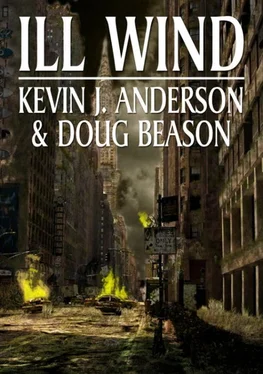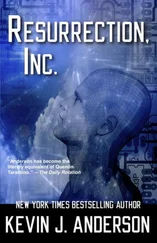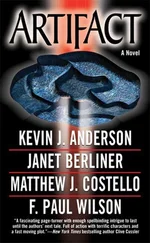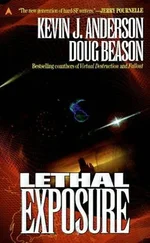A real no-brainer , Spencer had called the exercise. Right!
Rita wiped a hand over her sooty face. “So, we fix it up and try again?”
“Must be an engineering problem,” he said, scowling at the substation components.
Before the petroplague, the station had been a crossroads for power generated by the Public Service Company of New Mexico and the Rural Electric Network. Now, nothing remained but a smoldering pile of resistors, coiled windings, and insulators. At least the electric company wouldn’t come after him for damages.
“Let’s find out what went wrong,” he said. “That’s the only way we’ll learn anything. I want to get back to the microwave farm by sundown for the JPL contact.”
“You don’t seem too upset after just blowing the hell out of that substation,” Rita said.
“Job security,” Spencer said and faked a shocked expression to mask his disappointment. “You’ve been hanging around Nedermyer too much.”
* * *
Romero tugged on his drooping black mustache. “Caltech’s on the wireless, Spence. They’re ready for you.”
“Thanks.” Spencer took a seat. Now that the sun was down, their shortwave radio could eavesdrop on the world.
The blockhouse was illuminated by beeswax candles. They had a few battery-powered lights, but they tried not to use them much. Shadows cast by the flickering light danced on the trailer walls.
Static came from the radio speaker like ocean surf, distorting the voice that relayed news across the country for local dissemination. Romero repeated the news back to the emergency broadcast channel, verifying that he had correctly copied the contents.
Rita whispered, “You’re not going to tell them the test failed, are you? JPL might not send the satellites if they find out you can’t even get the power lines to work.”
“The experiment didn’t fail,” Spencer said. “It just pointed out some deficiencies in our assumptions.”
“ Now who’s been talking to Nedermyer too much?” she snorted.
Romero handed him the makeshift microphone. “All set. You’ve got five minutes.”
Spencer fingered the button, clicking it twice. “Hello? This is Spencer Lockwood from White Sands.”
A moment passed. Nothing but static came over the speaker. He frowned and started to repeat himself when a voice broke through. “Dr. Lockwood?”
Spencer leaned forward. “Yes, that’s me.”
“Stand by, one. We’ve got someone here for you.”
The microphone rustled as it was handed over. “Spencer? Is this the same Doctor Lockwood I taught at Caltech?”
Spencer stopped. The voice sounded familiar, but it had been so many years… “Seth— Seth Mansfield? Is that you?”
Coughing. “Spencer, are you still playing with those smallsats? Dr. Soo at JPL tells me you’ve been pestering her to ship the remaining satellites cross-country to you. What’s this nonsense? Last time I checked, you were a physicist, not a rocket scientist. At least that’s what I wrote on your diploma.”
He rolled his eyes. It was nice to hear from his gruff mentor again. “Seth, what are you doing there? I thought you retired years ago.”
The Nobel laureate’s voice came back strong for a 74-year-old man. “Did you expect me to roll over and play dead? I returned here after the plague hit. The least I could do is wash bottles while the microbiologists try to figure this damn thing out.”
Romero leaned over and whispered, “You’ve only got four minutes, Spence.” Spencer waved him away.
“Seth, I’d love to talk, but I just don’t have the time.”
“Oh, all right! I hear you were going to transmit electricity today to power some damned water pump.”
“Well, Seth, it—”
“Good thinking, Spencer. You’ll need the infrastructure up and working before the smallsats can do any good. Doesn’t matter if you have all the microwave energy in the world if you don’t have any way to get it to people. How did you do? Did it work?”
Rita leaned over and scowled. Spencer saw his precious time slip away. The Caltech emergency network operators adhered to a ruthless reputation when it came to partitioning radio time. He sighed; it was a lost cause to argue with his old professor.
“Uh, it didn’t go exactly as planned, Seth. There are more problems than I suspected with the transformers. But it’s just an engineering problem.” Romero clapped a hand to his forehead and snickered; Spencer turned back to the radio. “We’ll fix it. I’ve already got a team working on design changes, using what we learned from the test.”
“Engineering problems! Those are the best kind,” Mansfield said. “You think your idea will still work?”
“Of course it’ll work! Look, we transmitted the power at least twenty miles, and that’s a lot farther than we thought would be possible with these primitive lines. It blew out a transformer at the substation, so we know the electricity got that far.”
Spencer threw a glance at Rita. She mouthed, ‘Less than one minute.’ Spencer thought he heard the hint of a laugh over the static-filled channel. “Plenty of people here at JPL thought you were just pipedreaming, son. There’s starvation and rioting going on out here, in case you haven’t heard.”
“We have the same reports coming out of El Paso and Albuquerque,” said Spencer. “All the more reason to give people some shining example of hope, something to show that we can get back on our feet again.”
“Okay, Spencer. The JPL folks wanted assurance of two things: that you weren’t lying, and their efforts wouldn’t be wasted. I think I’ve convinced the JPL acting director that you haven’t gone loony tunes. Of course, I don’t know how the hell you expect to get twenty 300-pound satellites from Caltech to White Sands. By a wheelbarrow? A refurbished Conestoga wagon?”
Spencer didn’t know what to say. “Uh, that’s the next question, but it’s really just another engineering problem. We can solve those.”
The old man laughed. “If you manage this one, Spencer, you deserve a Nobel Prize of your own!”
Todd Severyn cocked back his cowboy hat and scanned the rolling vista of the Altamont range. His chocolate quarter horse snorted at the dry, unpalateable grass on the ridge. The sky above was as blue and smooth as a robin’s egg, cloudless; he didn’t expect to hear a discouraging word… at least not until he rode back to those wierdos at the commune.
Todd urged Stimpy down the slope, following a cattle trail toward the glistening aqueduct that directed fresh water from the mountains. Moving again, Stimpy crashed through the grass with an energetic gait that showed Todd how much the mare was enjoying her regular long-distance rides.
Gleaming white windmills, spinning in rampant breezes that gusted over the range, lined the crests of the rounded hills. Many of the wind turbines had burned-out rotors with gummed lubricants; Jackson Harris and his group of washed-up hippies spent much of their days trying to repair them.
Far below to his left Todd could see the empty interstate freeway dotted with wrecked and abandoned cars. With the traffic gone and the people scattered from the corpses of the cities, he found the world more palatable in a way. Like his beloved Wyoming, everything had slowed down, gone back to the ways of a century before when communities worked together to survive, and each small town was its own little world.
That was how Jackson Harris and the Altamont commune managed to succeed, but Todd didn’t fit in. Philosophically, they were poles apart, yet he did enjoy belonging to their settlement. As long as he didn’t have to sing along with their campfire concerts of oold Rock & Roll songs. And Iris Shikozu certainly seemed comfortable with the arrangement, even if he wasn’t….
Читать дальше












